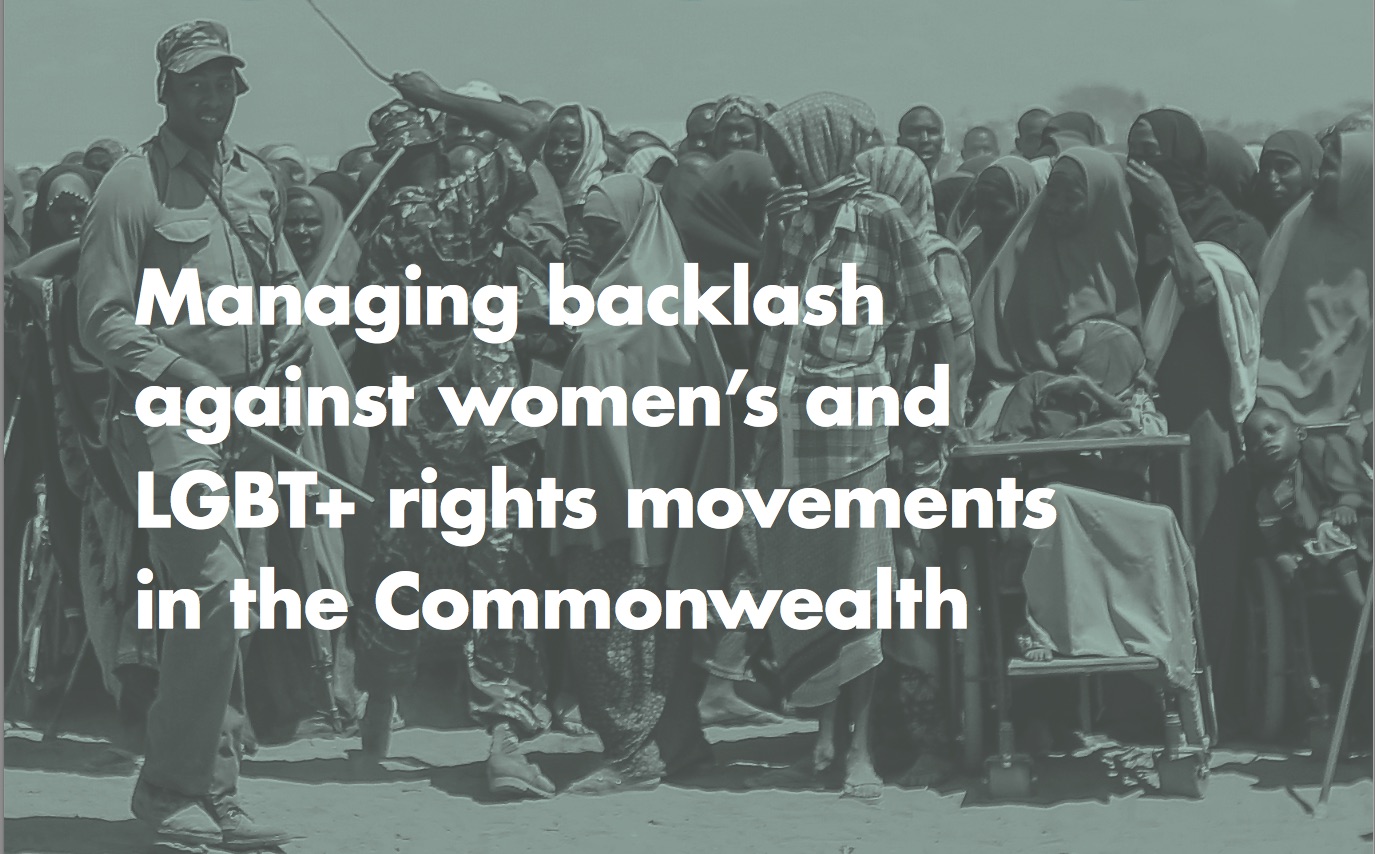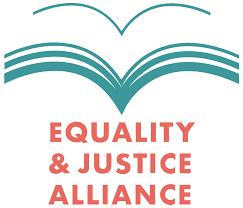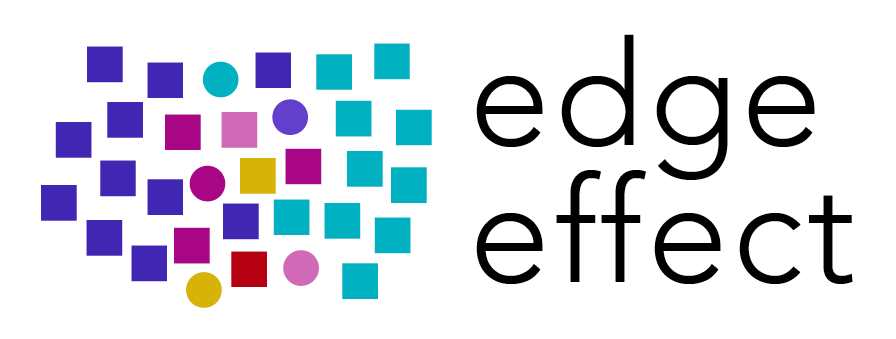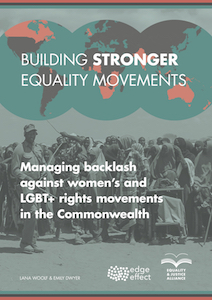Managing Backlash Against Women’s and LGBT+ Rights Movements in the Commonwealth

Geography
Commonwealth (esp Sri Lanka, St Lucia, Tanzania, Tonga)
Status
Complete
Summary
Every day, women’s rights activists and activists asserting the rights of people with diverse sexual orientations, gender identities and expressions (SOGIE)7 live with backlash. It comes in many forms: from acute violence directed at individuals, to surveillance meant to intimidate, to stories or myths that in ame fear, to steps intended to frustrate the pace of change, to the slow drip of harassment online, in the streets or in families. Backlash is aimed at activists, the civil society organisations they work within and the movements they seek to build.
Edge Effect was commissioned by the Equality and Justice Alliance to explore how backlash and resistance to change affect lived experience of activists, the organisations and movements they are part of, and the progress of change. Edge Effect worked with an Advisory group of activists from Sri Lanka, St Lucia, Tanzania and Tonga, and conducted interviews with many women’s rights and diverse SOGIESC actors. The paper was informed by an extensive literature review.
The paper starts by examining the notion of backlash from the perspective of the existing literature. It then looks at backlash through the words and experiences of 40 women’s and diverse SOGIE rights activists in four Commonwealth countries: Sri Lanka, St Lucia, Tanzania and Tonga.It maps different forms of backlash with reference to examples in the four research countries, drawing attention to particular tensions and challenges. The findings indicate that all forms of backlash have a profound impact on women and SOGIE people and can frustrate or set back progress within the movements in which they work. The paper goes on to outline practical strategies used by SOGIE and women’s rights activists to counter and – in some cases – simply cope with backlash.
With Support From:


